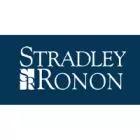In a 5-4 ruling on June 30, the U.S. Supreme Court held that private business owners have protection against government regulation under the federal Religious Freedom Restoration Act (RFRA). That Act, passed in 1993, provides that burdens on religion be evaluated under strict scrutiny, which means that the government must prove that the least restrictive way to accomplish a compelling governmental interest is to deny the religious claim. In 1997, the Supreme Court held that the Act does not apply to states, but in 2006, the Court applied it against the federal government. Until its decision in Burwell v. Hobby Lobby Stores, the Court had never applied the Act in a commercial context.
The commercial claimants before the Court – Hobby Lobby (a large Christian-owned home arts supply chain), Mardel (a chain of religious bookstores) and Conestoga Wood (a Mennonite-owned wood products company) – contended that the preventive services mandate of the Affordable Care Act (ACA) required them to pay for contraceptive drugs that were contrary to the owners' religious beliefs. Justice Samuel Alito for the majority, resolving a split in the circuit courts of appeal, held that RFRA applied because the law allows a "person" to protest a burden on religiously motivated conduct, and federal law includes a corporation in the definition of "person." The more difficult question was whether a corporation could exercise "religion," and therefore suffer a burden to trigger application of RFRA. The Court held that, on the specific facts of these cases, involving for-profit closely held corporations, a burden on religion existed and that RFRA applied to exempt these businesses from the contraceptive mandate, suggesting that the same rules that apply to religious nonprofits could alleviate the burden. Although the Court discussed the exercise of religion by corporations, the Court avoided deciding the case as a matter of First Amendment law.
Justice Ruth Bader Ginsburg wrote in dissent and emphasized that incorporation of an entity for private profit severed the personal from the corporate and that "the exercise of religion is characteristic of natural persons, not artificial legal entities." Ginsburg's dissent also expressed concern about where any meaningful line could be drawn for the future on, for example, the applicability of anti-discrimination laws.
The effects of the ruling will end, for all practical purposes, litigation involving scores of for-profit, closely held corporations. And there are certainly implications for the dozens of other challenges to the ACA filed by nonprofit religious organizations. In Hobby Lobby, the Court noted the government-proposed exemptions and accommodations for religious nonprofits as evidence that there are less invasive ways to assure that the government's interest in preventive services is achieved without invading religious rights. Whether this signals a positive disposition by the Court towards that accommodation will not be known until those lawsuits, which include RFRA claims, reach the Court – which might be next year.
What is next on the horizon? The decision might result in calls by academics, as argued in at least one amicus brief, to have RFRA declared unconstitutional. That issue was not joined by the government, and was not the point of any discussion by any Justice. But given the result, that issue will almost surely get more attention. The expansion of rights for corporations from expressive association in Hurley, to free speech in Citizens United, to religion here could almost certainly lead to further exploration of other rights that can be exercised by corporations. Corporate officers, in partnership with experts, will have to pay careful attention to the broader implications of Hobby Lobby in any confrontations with government requirements.
The content of this article is intended to provide a general guide to the subject matter. Specialist advice should be sought about your specific circumstances.

